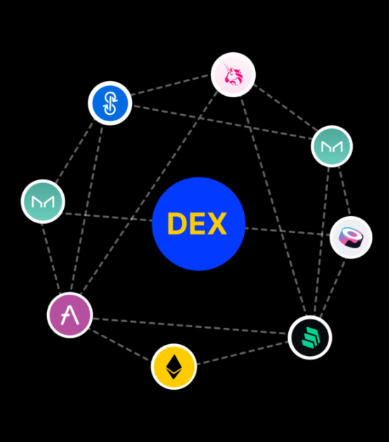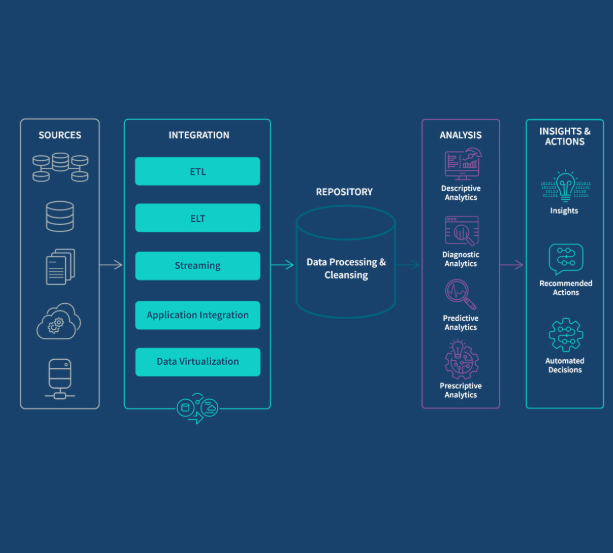
Machine learning (ML) is rapidly transforming how businesses operate, offering companies the ability to automate processes, enhance customer experiences, improve decision-making, and optimize operations. For startups looking to leverage this cutting-edge technology, there are numerous opportunities across various industries to build innovative solutions that address long-standing problems. From personal finance to fraud detection, ML can help optimize processes, boost customer satisfaction, and foster smarter decision-making.
In this blog, we’ll explore six promising ML-driven business ideas, including their use cases, target audiences, and feasibility considerations. These ideas present immense potential for startups to gain a competitive edge in 2025.
1. Personalized Financial Advisory Tools
Overview: Machine learning algorithms can analyze vast amounts of financial data, including spending habits, investment goals, and risk tolerance, to provide personalized financial advice.
Business Need: Financial literacy remains low among many consumers, with numerous studies showing that individuals struggle to make informed investment decisions. ML can provide tailored financial advice based on data-driven insights, helping individuals make smarter financial decisions.
Use Cases:
- Financial document analytics tools
- Credit underwriting platforms
- Robo-advisors for retail investors
- Real-time financial planning assistants
Target Audience:
- Retail investors
- Wealth management firms
- Young professionals
- Government workers
Feasibility Considerations: Startups need access to high-quality financial data and predictive models that adhere to financial regulations to build trust and provide reliable advice.
2. Personalized Travel Concierge Services
Overview: ML can enhance travel concierge services by helping users select vacation destinations, plan customized itineraries, and manage travel-related tasks based on user preferences and even mood.
Business Need: Travelers increasingly seek personalized experiences, and ML can bring order to the overwhelming number of travel options available. Personalized travel services are in high demand, with travelers open to using AI for planning their trips.
Use Cases:
- Customized trip planners
- Corporate travel management
- Travel review platforms
- Image recognition for new destinations
Target Audience:
- Solo travelers
- Business travelers
- Digital nomads
- Travel influencers
Feasibility Considerations: Building a successful AI-powered travel concierge requires integrating large datasets like customer preferences, booking history, and social media reviews, while maintaining privacy standards such as GDPR compliance.
3. Real Estate and Property Search Services
Overview: Machine learning can revolutionize the real estate industry by offering accurate property valuations, personalized property recommendations, and predictive analytics to forecast market trends.
Business Need: As real estate prices continue to rise, buyers and investors are increasingly turning to technology to make more informed decisions. Machine learning provides a comprehensive view of the market, helping users find the best deals.
Use Cases:
- Personalized property search engines
- Property value prediction tools
- Smart investment analysis
- Virtual property tours
Target Audience:
- First-time homebuyers
- Real estate agencies
- Property management companies
- Real estate investors
Feasibility Considerations: Startups in this niche must partner with data providers to access reliable property data and ensure legal compliance with housing regulations such as GDPR.
4. Shopping Assistants
Overview: ML-powered shopping assistants can provide personalized product recommendations, track price trends, and even notify customers of discounts or restocks based on their preferences.
Business Need: The global e-commerce market continues to grow, but cart abandonment rates remain high due to overwhelming options and price concerns. AI assistants can help bridge the trust gap, offer personalized recommendations, and increase conversions.
Use Cases:
- Price comparison bots
- Personalized product suggestions
- Visual search engines
- Restock and price drop notifications
Target Audience:
- Online shoppers
- E-commerce platforms
- Retail brands
- Coupon websites
Feasibility Considerations: To develop a successful shopping assistant, startups must access real-time product and pricing data from retailers and ensure the assistant integrates seamlessly with visual search and natural language processing systems.
5. Fraud Detection Systems
Overview: ML algorithms can identify patterns and anomalies in large datasets, making them ideal for detecting fraudulent activities in real time. From banking transactions to identity verification, ML can help flag suspicious behavior and alert users immediately.
Business Need: Fraud continues to be a significant problem across various industries, with businesses losing trillions of dollars each year. As cybercrime increases, the demand for advanced fraud detection systems grows.
Use Cases:
- Transaction anomaly detection
- Identity verification and KYC automation
- Fraud detection in insurance claims
- Account takeover detection
Target Audience:
- Banks and fintech companies
- Insurance firms
- E-commerce businesses
- Payment gateways
Feasibility Considerations: Building an effective fraud detection system requires access to high-volume transaction data, strict adherence to privacy laws, and collaboration with cybersecurity firms to ensure model accuracy and robustness.
6. Supply Chain Optimization and Inventory Management Systems
Overview: ML-powered systems can help businesses predict demand, optimize inventory levels, and improve logistics efficiency. By analyzing historical data and real-time information, these systems can enhance supply chain operations.
Business Need: The global supply chain has faced disruptions in recent years, highlighting the need for resilient, adaptive systems. ML can help companies make more accurate forecasts and reduce inefficiencies in inventory management.
Use Cases:
- Demand forecasting and inventory optimization
- Predictive maintenance for logistics equipment
- Route optimization for transportation
- Automated procurement and replenishment systems
Target Audience:
- Manufacturing companies
- Retailers and e-commerce businesses
- Logistics firms
- Wholesale distributors
Feasibility Considerations: To implement ML in supply chain management, startups must access quality data across multiple systems like ERP and WMS, build scalable models, and ensure real-time data integration.
Conclusion
Machine learning has the potential to revolutionize various industries by optimizing processes, enhancing customer experiences, and enabling smarter decision-making. Whether you’re interested in providing personalized financial advice, creating intelligent shopping assistants, or developing advanced fraud detection systems, there are countless opportunities for innovative startups to leverage ML. To succeed, businesses need to focus on data quality, regulatory compliance, and seamless integration of AI models into existing processes. The future of machine learning is bright, and those who invest in these technologies will be well-positioned to lead the way.















































